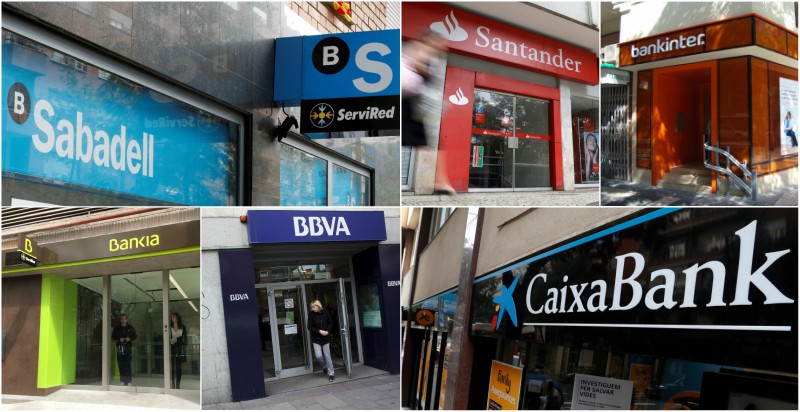The Spanish banking sector passed the ECB’s last stress test with flying colors. As expected, all the banks in our country, which represent 95% of the nation’s financial sector, passed. Liberbank was the only bank to fail a balance-sheet exam, and it barely missed the mark by having 7.82% in capital reserves when it should have had 8.00% according to the ECB.
Liberbank had a 32-million euro capital shortfall at the end of 2013 and was able to raise 606 million euros by the end of the year. Compared to other banks in the region, the Spanish banks are in phenomenal shape overall.
In fact, the first part of the tests evaluates the current risk exposure that banks have it another deep recession were to hit Europe. Spain would need to raise 33.8 billion euros, which would make the banks 0.14% less solvent. This ratio is the best in Europe and far below the 0.4% target. If and when a stressful event hits, such as the possible drop in GDP, the banking system’s net capital reserves would fall just 1.4% compared to the European average of 3%.
Considering their efforts to strengthen balance sheets during 2012 and 2013 in response to one of the worst financial crises in their history, it is no surprise that the big Spanish banks such as Caixabank, BBVA and Santander are in good shape. These three have the best solvency ratios of the top ten biggest European banks rated by market capitalization. Looking back, it was worth it to suffer through austerity.
The euro zone will take a decisive step toward banking unity on November 4 when the ECB will assume a supervisory role over all banks in the region. Recent stress tests show that Draghi’s institution has solid tools to evaluate, with transparency and consistency, what is going on in the sector. As a result, nothing would be worse than to overlook their importance, even if experts predicted the results.
Similarly, the people who refuse to believe that the results symbolize a new era are wrong. Banks will have to come up with new forms of capital that will undermine their funds. It makes sense to listen to Draghi when he warns that the banks don’t have any time left to raise capital in traditional ways.
It would also be wrong to think that rebuilding credit markets will happen quickly. The fact that the banks have cleaned up their balance sheets does not matter when the demand for loans is so weak thanks to high unemployment and debt levels, especially in the public sector, because it has not made as extreme cutbacks as the private sector.
